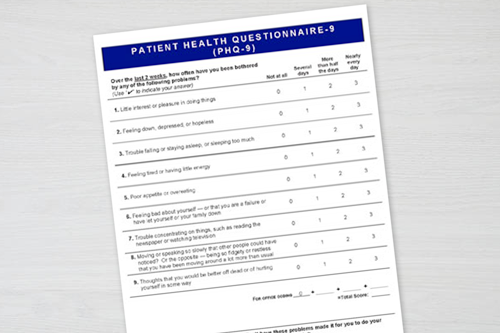 Measuring symptoms such as depression, anxiety, and pain helps providers form the best care plan for their patients. Without the proper tools, though, measuring symptoms could be full of guesswork and uncertainty. Regenstrief scientists, including Kurt Kroenke, M.D., have made industry-defining questionnaires that help care providers reliably measure symptoms and improve care.
Measuring symptoms such as depression, anxiety, and pain helps providers form the best care plan for their patients. Without the proper tools, though, measuring symptoms could be full of guesswork and uncertainty. Regenstrief scientists, including Kurt Kroenke, M.D., have made industry-defining questionnaires that help care providers reliably measure symptoms and improve care.
Throughout Regenstrief Institute’s half century of innovating in patient care, its research scientists have created and tested many symptom-tracking instruments, such as surveys and questionnaires in order to improve patient health. The GAD-7, a tool to measure generalized anxiety, and the PHQ-9, which measures depression, have been cited in thousands of research papers and are used in a variety of healthcare settings, from counselors’ offices to primary care. These tools have paved the way for development of countless other symptom monitoring tools and empowered providers to precisely calibrate their patients’ care plans.
Regenstrief research scientists are exploring the use of symptom-tracking surveys as apps to help make tracking and monitoring more convenient for patients and providers. They have also developed tools to track the burden of care on caregivers of patients with dementia, generalized pain, and mania. Through the development of all of these tools, Regenstrief has furthered its vision of ending disease and realizing true health for patients.




